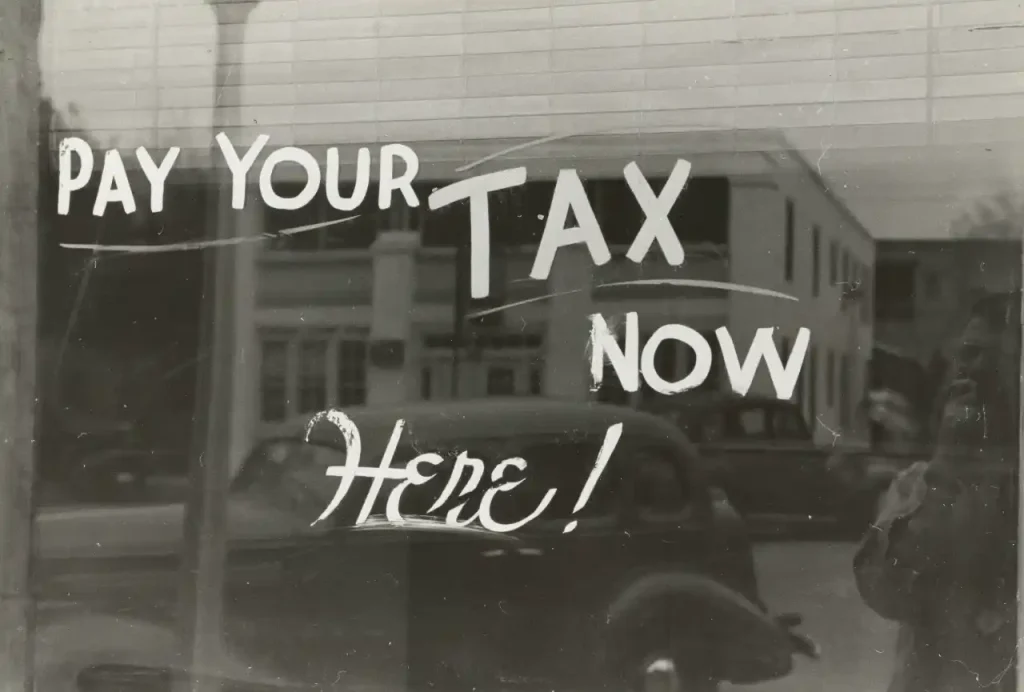
Understanding the Beckham Law in Spain: A Comprehensive Overview
An Introduction to the Beckham Law in Spain
Imagine you’re a high-earning foreign professional, working your way up in the bustling, vibrant city of Spain. You’re achieving your dreams, but there’s a catch – the high tax rates.
This is where the Beckham Law comes into play, offering you an enticing tax exemption. Named after the famous footballer David Beckham, who was one of the first to benefit from it, the Beckham Law has a fascinating backstory and impact that might just pique your interest.
Prepare to dive headfirst into an illuminating exploration of this intriguing Spanish tax law. Buckle up, because we’re about to embark on a riveting journey through its intricate mechanics, eligibility criteria, pros, cons, and even its significance for digital nomads. Get ready to discover an entirely new perspective of working in Spain!
The Mechanics of the Beckham Law: How It Works
So, you’re intrigued and want to know how this tax scheme really operates? Let’s break it down. Imagine the Beckham Law as a friendly financial overture to welcome high-income foreigners to work in Spain. It’s equivalent to rolling out a red carpet for a global talent, you could say.
Under this unique piece of legislation, foreign residents are taxed only on their income earned within Spain and not on their global income. This contrasts distinctly with the usual approach where residents are taxed on their worldwide income by the Spanish tax authorities. Essentially, the Beckham Law allows you to keep more of your hard-earned money.
But it’s not all about money. The tax certificates provided under this law are also a kind of validation and recognition. It’s a confirmation that you, as a highly valued professional, are contributing significantly to Spain’s economy.
However, there’s a catch. Not all income is covered under this law. If your income comes from overseas properties, sales of goods overseas, or privilege rights, it will be taxed as per the conventional rules. But salaries, performance bonuses, and income generated within Spain? Those are taxed at a much lower and more forgiving rate.
Remember, in the realm of taxation, knowledge is power. And with this understanding of the Beckham Law’s operations, you can certainly navigate the Spanish tax scene more confidently. Just always ensure you’re well-advised legally, to make the most out of your tax strategies.

Who Qualifies for the Beckham Law?
You might already be wondering if you qualify for the Beckham Law. Let’s get into that. The Beckham Law was originally designed to attract international talent from the fields of sports and entertainment – hence it’s, informal, famous namesake, David Beckham, the superb soccer player who benefited from the law when he moved to play in Spain. But it’s not just for high-profile celebrities. Good news right?
The Beckham Law applies to any foreign worker who moves to Spain for a contracted job. That’s right, you could be an engineer, a programmer, a designer or a teacher – if you’re recruited from abroad to work in Spain, this law applies to you. Part of the beauty of the Beckham Law is its wide applicability.
However, there is a small catch. To qualify for the Beckham Law, you must not have been a Spanish tax resident in the 5 years prior to your move. This ensures that the scheme fulfils its primary purpose – to incentivise international talent attraction and stimulate the Spanish economy. So, have you been living outside Spain for the past 10 years? If so, this might be your golden ticket.
Also, remember that the law applies to new residents only.
***Moreover, the law retroactively applies to taxpayers who establish their tax residence in Spain during the tax period of 2023 as a result of relocation to Spanish territory in 2022 or 2023. They will have six months to opt for this regime once the Order with the model to opt in is approved, which has not yet been released.***
So, if you’re planning a career move to Spain or have been offered a role there, don’t forget to examine your eligibility for this attractive law. After all, who wouldn’t love a tax break!
What are the eligibility criteria for the Beckham Law?
There are some key conditions you must meet if you want to capitalize on the lucrative incentives of the Beckham Law. These are outlined in detail to help you better understand if you’re eligible.
- The exclusivity condition: To qualify for the Beckham Law, you’ve got to be new to Spain—or at least, you can’t have been a tax resident in the country for the last 5 years.
- The employment contract requirement: It’s essential to have an employment contract with a Spanish company.
- The board member limitation: Holders of more than a 25% stake in the company that employs them can’t take advantage of the Beckham Law. However, if their stake is less than this or acquired after they take up residence in Spain, it’s all systems go.
It’s important to keep in mind that these criteria could change or evolve. The best way to ensure your eligibility is to consult with a legal expert who is familiar with Spanish tax law and can provide up-to-date advice.
An In-depth Look at the Benefits of the Beckham Law
So, you’ve got a grasp on the Beckham Law and its main components, but you’re probably wondering more about its benefits, right? It’s quite simple: the biggest perk is to do with tax. Yes, taxes, that necessary evil of financial life. But hold your groans, because here is where the Beckham Law might just shine for you.
The law is fundamentally designed to help non-Spanish individuals, specifically those moving into Spain for employment reasons. As per this law, individuals are taxed only on their Spanish-sourced income and not worldwide income. Tax rates at a capped rate of 24% for the first €600,000 of income represent a significantly lower burden compared to Spain’s general income tax which can go up to 47%.
This might sound technical but understand it this way: Imagine earning a good amount of money in different parts of the world, and only having to pay tax for the portion earned in Spain. Amazing, right?
Moving on, another advantage is its duration. The law allows for this tax scheme to be enjoyed for six years. So you get to make the most of this relatively low tax rate for a decent amount of time, which could potentially lead to substantial savings!
So there you have it. The primary benefits of the Beckham Law laid out for you. As you can see, it’s not just about understanding the law, but understanding how it can work in your favor.
Apply for your Visa today
Start Now!Beckham Law for digital nomads
You might wonder, “What’s the connection between digital nomads and the Beckham Law?” In this ever-evolving digital realm, professions are transcending borders, making Spain a favored destination for digital nomads. But migrating to another country requires an understanding of its tax law, which is where the Beckham Law enters the picture.
Primarily meant to attract foreign talent into the country, the Beckham Law greatly benefits digital nomads. Why?
Well, it’s because of an interesting tax provision it offers. Under this law, newcomers to Spain who earn their wage abroad are only taxable on their Spanish-sourced income. And even then, only up to a maximum of €600,000. This means that a significant portion of a digital nomad’s income could potentially be tax-free, an alluring concept for anyone considering a move to Spain.
However, here’s the catch — this exemption status is only available for the first six years you reside in Spain. After this period, you’ll no longer be considered a non-resident and must transition to a common tax regime. But for those six years, digital nomads can bask in the advantage offered by the Beckham Law and significantly save on their tax obligations.

Digital Nomad employment perspective
From an employment perspective, the Beckham Law stipulates that you must be either enrolled in Spain or able to produce documents demonstrating your eligibility to carry on the Social Security regulations of your home country. Other requisite pieces of information include your work location and your home address. Additionally, you’ll need to disclose the duration for which you’ve been deployed, along with a myriad of other documentation.
If you’re engaged in an economic activity on a self-employed or freelance basis, the Beckham Law lays out further requirements. Specifically, you must engage in an activity that falls under the category of an entrepreneurial enterprise. A positive report from the National Innovation Company (ENISA) will be vital to your application.
Otherwise, if you are a highly skilled professional providing services to start-up businesses, you are also eligible. But, in this scenario, you must be able to display a verification of the start-up’s registration status in the Commercial Register.
For the sake of simplicity, let’s note that the Beckham Law primarily applies to digital nomads registering themselves as employees in Spain. In this case, the employing firm must arrange for your NIE (Foreigner’s Identity Number), make sure they register you as an employee under Social Security in Spain, and handle the witholding of both your Non-Resident Income Tax and any contributions to the General Social Security Regime.
Application Process for the Beckham Law
So, you’ve determined that you qualify for the Beckham law and want to go ahead with the application process, let’s proceed next. It’s integral to note that the application must be made within six months after starting the job that brought you to Spain.
First off, don’t worry, the process isn’t as convoluted as you might think it is. The Beckham law application process involves declaring your intention to the Spanish tax authorities, mainly through form 149. This form informs that you want to be taxed under the specific regime of the law, and yep, it’s that simple. But remember, simplicity doesn’t mean you can’t miss a beat. Make sure all your details are accurate.
Once you’ve submitted the form, you’ll typically receive a tax identification number—a crucial number during your time in Spain. If the Spanish Tax Agency approves your application, you’re good to go. You’ll start receiving the benefits of the Beckham law from the tax year following the approval of your application.
Keep in mind, however, that the application process for the Beckham Law varies, depending on your current status in Spain. It’s always good to seek legal assistance to ensure that you’re following the correct procedures and abiding by all the regulations. This will also streamline the process, making it almost stress-free for you.
In summary, while the Beckham Law application process may seem daunting at first glance, by taking the right steps, you can embrace its benefits and breathe a sigh of relief. So gear up, gather your documents, and tread this journey confidently. You’re on your way to maximizing your income with lesser tax concerns in Spain!
Apply for your Visa today
Start Now!How is the Beckham Law different from other tax laws in Spain?
You might wonder, “What makes the Beckham Law unique compared to other tax laws in Spain?” Allow us to enlighten you. One significant difference lies in the terms of taxation. Unlike common tax laws that impose taxes on an individual’s worldwide income, the Beckham Law only requires applicants to pay tax on the income generated within the country of Spain. This gives foreign professionals, particularly those with substantial incomes outside of Spain, a significant tax advantage.
Another point to take note of is that the Beckham Law targets a specific demographic – foreign professionals moving to Spain. Other tax laws looming in Spain deal with citizens, residents, and businesses at large. The Beckham Law uniquely caters to those who are attracted to experiencing life under the Spanish sun while continuing their professional endeavours.
Moreover, the Law proposes a capped tax rate of 24% on the first €600,000 earned in Spain. This aspect sets a stark contrast with the usual progressive tax rates found in other Spanish regulations. These range from 19% to 47%, increasing as your income rises. The flat tax rate proposition put forth by the Beckham Law offers an enticing tax shield for high-income earners, opening up channels for financial comfort and growth.
In essence, the Beckham Law is cast from a different mold, created to entice talent from around the globe and providing them with a financial breather in relation to their taxes. It’s certainly not your conventional tax law – but then again, it’s not intended to be.
What are the disadvantages of the Beckham Law?
The Beckham Law, while financially rewarding, also has its own set of limitations that need to be kept in mind before making any final determinations. So, is it a mice and men situation or does it promise straight-forward benefits? That’s a layered question to unpack.
Let’s take a detour for a moment and ponder this – could the Beckham Law possibly coexist with double taxation agreements (DTAs)? Well, the scenario isn’t cut and dried. Some countries’ DTAs might play along nicely with the Beckham Law, while others could stir up a whirlwind of complexities. In essence, a DTA is a pact established between two nations with an aim to prevent income from being taxed twice in both countries. But, how this works in tandem with the Beckham Law is a nuanced topic, adding a layer of complication to the matter.
To illustrate, let’s see what a DTA is: it’s basically a pact between two nations to dodge double-dipping on tax – double-taxing the very same income in both of them.
Opting for the Beckham Law opens up the opportunity for you to nab a certificate of tax residency in Spain, your golden ticket verifying your Spanish tax residency to other countries. The clincher is you need this passport as a key to unlocking the tax advantages within any specific DTA. But here comes the curveball – certain DTAs explicitly obstruct their benefits when you reach out for the Beckham Law.
The impacts of this can range from a mild inconvenience to a major shock, depending on how you make your dough and where you raise it. In the grimmest scenario, you might end up taxed twice for the exact same income. That’s why it’s critical to take an individual approach, examining the specifics of your situation to decipher the potential repercussions.
Another disadvantage of the Beckham Law is its potential for misuse and abuse. Critics argue that it essentially provides a legal avenue for wealthy individuals to significantly lower their tax payments, which some view as fundamentally unfair. They believe that it may contribute to stark disparities in wealth, particularly in Spain, by enabling higher-income individuals to amass wealth at a far greater speed than their less wealthy counterparts.
In addition to perceived inequality, the Beckham Law has been criticized for its contribution to Spain’s economic instability. By dropping tax rates for high earners, the government may be missing out on a potential revenue source that could be used to fund vital public services and foster economic growth.
One other significant downside is that the law is not applicable to everyone. It only applies to select groups of people, often those with substantial income. Therefore, the majority of taxpayers are unable to directly benefit from the law.
Lastly, it’s worth mentioning that if you take advantage of the Beckham Law, you will be required to fulfill certain financial obligations and comply with Spain’s strict legal and fiscal rules, which can add to your bureaucratic burden. Breaking these obligations can lead to hefty penalties, so it’s instrumental to stay informed and up-to-date with related documentation and regulations.
In summary, while the Beckham Law does offer enticing benefits, it’s important to take into account the potential drawbacks before deciding to rely on it for tax purposes. An informed decision is always the best decision.


